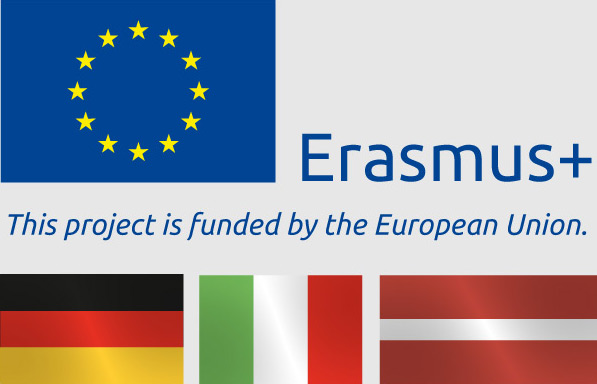Fit for Job: Orientation to Career and University Studies at Secondary Schools
A central flagship initiative of the EU 2020 strategy is the agenda for new jobs: modernization of the labor market by promoting labor mobility and lifelong learning so that labor demand and supply will match better. Our project is based clearly on this initiative.
Description of the Project
Today a globalized economy is defining the European economy and the European job market in many ways. A high level of professional qualification, lifelong learning, foreign language skills and intercultural competences facilitate the career launch. Particularly in higher educational institutions, an early professional orientation should be encouraged.
The project Fit for Job: Orientation to Career and University Studies supports the students in evaluating their own competences in alignment with the future professional requirements. Thus, the transition from school to a higher education or to working life is facilitated.
For the imparting of these competences, systematic educational measures are required, combined with practical experience. Appropriate measures for the professional orientation are among others, competence ascertainment procedures, business explorations, company internships, teaching sequences with the cooperation of education partners, professional training projects, student companies and training modules during subject-oriented lessons that are set out in the curriculum of a school.
Central questions in this context are:
- Which qualifications and skills are called for in the regional, national and European job market?
- What are the chances and the risks associated with certain study courses and career aspirations?
- Are there extra-curricular partners who can give help with orientation?
- Where can internships be completed – also in foreign European countries?
- What can be done to improve language skills and intercultural competences?
Participating Schools
Progymnasium Altshausen, Liceo ginnasio statale "Giuseppe Cevolani" Cento, Rigas Valsts 3. ģimnāzija
Three schools in three different European regions and countries are working together to exchange their ideas transnationally, concerning proven concepts and to optimize and develop new ones. The schools participating in the project are located in regions that show economic differences: in Latvia the unemployment rate of young people is above-average, whereas the job market situation in Emilia-Romagna and in Upper Swabia is significantly better. In these regions specialists are wanted, particularly in the spheres known by the German acronym MINT (mathematics, information technology, natural sciences and technology).
The Progymnasium Altshausen has already got a greater level of competence in the field of orientation to career and university studies, the other two schools are offering single elements in their curricula and wish to enhance their offer for job orientation at their schools.
Objectives of the project
The objective of the project is to optimize the current orientation concept of the Progymnasium Altshausen and to enhance it by a European component. The other two partner schools will develop a concept for the orientation to career and university studies and implement it in a sustainable manner. The developed components, such as competence identification procedures, internships with education partners, company visits and modules for vocational orientation will be tested and evaluated by the students in subject-oriented lessons. The procedures deliver concrete results, which are reflected by the pupils in their internship reports.
An important role for the acquisition of professional competences plays the improvement of linguistic skills by the participating pupils and teachers. Therefore special foreign language trainings are offered for the main project languages. Other cultural components are examined as well, in order to obtain suggestions for the own school development. Teacher tandems provide deeper insight into the different school structures and organizations and the different curricula of the participating disciplines. Consequently pupils and teachers participate in an intercultural learning process, gaining the ability to reflect and to implement new competences, the ability to work in transnational teams and the ability to handle conflicts and to solve problems in an intercultural context due to mutual exchange.
In addition, the developed concepts should serve as possible models and enable other schools, education partners, companies and universities to benefit from these. A close cooperation between schools and the economy is expected, thus improving the intermeshing between education, training and labor market. The European idea is promoted on account of the cooperation.
In which way is the project innovative?
We do not know up to now of any project having its main focus on the orientation to career and university studies at upper secondary schools. Hitherto, this was mainly a privilege of the vocational schools and VET institutions. Nevertheless, we see ourselves as part of the movement that wants to anchor the vocational guidance in schools stronger.
